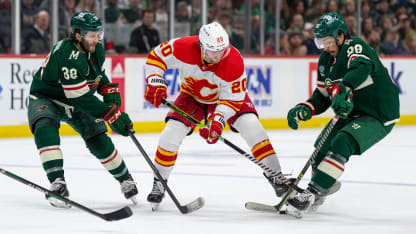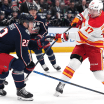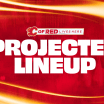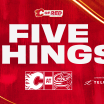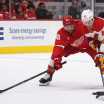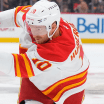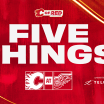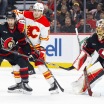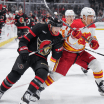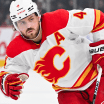Tyler Toffoli's goal with 6.2 seconds left in regulation gives Calgary a dramatic 5-4 victory in Dallas. Every member of the team's travelling party then springs into action, whether it's packing up gear and loading the truck, conducting postgame interviews, or wrapping up their coaching responsibilities.
It's nothing if not a mad dash. A ballet, of sorts.
And you better not be late.
The Flames' charter - an Air Canada Airbus A321 - leaves in an hour with more than 1,400 kilometres to cover for what will be the longest distance between games in a back-to-back situation all season.
The plane, itself, is dressed up with approximately 60 extra-wide business-class seats, and features gourmet meals and all the amenities to help the players get some rest. So, yes, a two-and-a-half-hour trek is not overly onerous under these decadent circumstances. But physically, after what they went through that night, they're drained - and they have another dance on deck the very next day.
So, while the players are in the back of the plane chowing down on protein and veggies, playing cards or catching a cat-nap, the coaches are up front setting the table for what needs to be accomplished in their pivotal rematch against the Wild.
"We get right on the plane and the computers come out," said Associate Coach Kirk Muller. "In a back-to-back situation, it's a combination of reviewing the game from that night and looking ahead - but you usually put most of their attention on the next night. New opponent, new philosophy. So, you try to correct some of the issues that happened the night before, and become aware of how your game will apply to the personnel you'll see the next night.
"It's all about being organized and having all the information the players need for when they come in in the morning. We want the players to arrive and see a well-prepared staff - who they're playing with, what the lineup looks like, when their meetings are. You want everything to be ready so all the players have to focus on is what they're best at."
